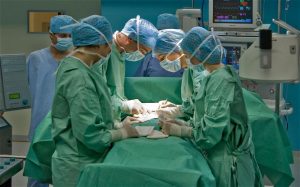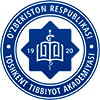
Obstetrics and gynecology – inextricably linked clinical medicine. Obstetrics, Gynecology, as part of, studying mainly processes related to conception, pregnancy, childbirth and the postpartum period, developing methods of obstetrics, prevention and treatment of complications of pregnancy and childbirth, the protection of the fetus and newborn efforts gynecology, as a science, aimed at the study of etiology , pathogenesis, clinical manifestations, diagnosis and treatment of diseases of the female reproductive system.
Experts in the field of obstetrics and gynecology should have the knowledge and skills of medical sciences relevant female reproductive system, including all aspects of the clinical diagnosis of conservative and surgical treatment, and prevention of diseases of the female reproductive system is during pregnancy. In addition, masters – obstetricians, being highly qualified, able to carry out not only medical and preventive work, and administrative – administrative, medical and social, organizational and methodical work.

The aim of master degree in obstetrics and gynecology is to train highly qualified specialists obstetrician-gynecologists who own in the proper amount of knowledge, skills and practical skills needed in modern obstetric and gynecological practice, the relevant certification requirements and subsequent licensing as professionals.
Learning objectives:
Develop up to date knowledge on the epidemiology, etiology, pathogenesis of gestational and postnatal complications, diseases of internal organs, accompanying pregnancy and gynecological diseases;
Develop knowledge of prenatal care, use of modern methods of diagnosis of pathological conditions related gestational and postnatal, gynecological diseases;
Develop the skills of self-determination of the required volume and a set of therapeutic and diagnostic procedures used in obstetric practice;
Teach carry out the necessary and adequate medical and diagnostic manipulations and procedures for pregnant women, new mothers and childbirth, as well as gynecological patients in outpatient and inpatient settings;
To develop the ability to interpret the results of modern laboratory and instrumental studies used in everyday practice obstetrician.
Develop the skills of highly qualified assistance at the current level in case of emergency related to pregnancy, childbirth and the postnatal period, as well as gynecological patients:
Develop the skills of intensive therapy in gestational complications and gynecological diseases:
To develop knowledge for the complex social and labor rehabilitation measures for pregnant and gynecological patients.
Develop the ability to preventive measures to reduce the most common gestational complications and prevention of gynecological diseases.
Requirements for knowledge, skills and abilities in academic discipline.
Master degree in obstetrics and gynecology have an idea:
– On current challenges and the main directions of development of medicine.
– New technologies in the diagnosis and treatment of diseases in pregnant women, pregnant women, women in childbirth and gynecological patients.
Know and be able to use:
– Highly questioning pregnant women, pregnant women, women in childbirth and gynecological patients;
– Execution of a perfect physical examination of pregnant women giving birth, women in childbirth and gynecological patients.
– Determination of the volume and set the necessary diagnostic and treatment measures used in obstetric practice.
-independent necessary therapeutic and diagnostic procedures for pregnant women in labor, childbirth and gynecological patients.
Interpretation of the results of additional research (laboratory, functional, hormonal endoscopic, Radiology, immunology, microbiology, morphology);
– Conducting independent comprehensive individualized treatment pregnancy pathology and background conditions, as well as gynecological diseases in prenatal, obstetric and gynecologic hospital, resuscitation and intensive care;
– Holding some resuscitation and assistance during emergencies in obstetric and gynecological clinic;
– Development and resuscitation, and assistance in case of emergency obstetric and gynecological care;
-development and rehabilitation measures childbirth and gynecological patients;
– Provide advice to women;
– Conducting medical medical records.
List of academic disciplines and their sections needed to study this academic discipline.
Education in the master’s degree in “Obstetrics and Gynecology” is based on the knowledge and skills acquired in the therapeutic and clinical departments during training in medical school training program for general practitioners and includes the following:
Normal anatomy (structure of the internal organs)
Normal physiology (functional physiology of the internal organs)
Pathological anatomy and histology (macro- and microscopic substrate illness in diseases that complicate pregnancy and related gestational process, as well as gynecological diseases).
Pathological Physiology (mechanisms of disease development, the adaptive compensatory reactions and patterns of violations of homeostasis in diseases associated with the female reproductive organs).
Biochemistry (the main biochemical reactions that underlie the development of diseases complicating pregnancy, concomitant gestational process, as well as gynecological diseases in complex adaptively – compensatory mechanisms of the whole organism).
Microbiology (microbiological and biochemical characteristics of etiological agents, methods for their identification and selection techniques optimal antimicrobial treatment of infectious diseases associated with the female reproductive system).
Internal Diseases (etiology, pathogenesis, classification, clinical manifestations, complications, diagnosis, differential diagnosis, comprehensive treatment, rehabilitation and prevention of diseases of the internal organs).
Surgical diseases the most common diseases that occur as complications or comorbidities is the female reproductive system and during pregnancy requiring emergency or elective surgical treatment, clinical – laboratory and instrumental criteria for the most common surgical diseases).
Obstetric Anesthesia and Intensive Care Rapid initial assessment (emergency care and resuscitation pregnant women in labor, childbirth, neonatal and gynecological patients).
Infectious diseases (diagnostic criteria and principles of treatment of the most common infectious diseases).
Phthisiology (visceral tuberculosis, clinical, laboratory and instrumental diagnostic criteria).
Endocrinology (diagnostic criteria and principles of treatment of the most common endocrine diseases, damage internal organs with endocrine diseases).
Dermatology (internal organ in skin and venereal diseases, diagnostic criteria).
Hematology (blood diseases occurring during pregnancy or complicate the process of gestation, attacks also occur as a background pathology of gynecological diseases).
Oncology (early clinical signs of cancer of the female reproductive system, laboratory and instrumental criteria).
Psychiatry (psychosomatic syndromes in obstetric practice, iatrogenic mental disorders).
Nerve disease (clinical symptoms, neurological symptoms and syndromes in obstetric practice).
Clinical pharmacology (mechanism of action, pharmacodynamics, pharmacokinetics, drug interaction)



